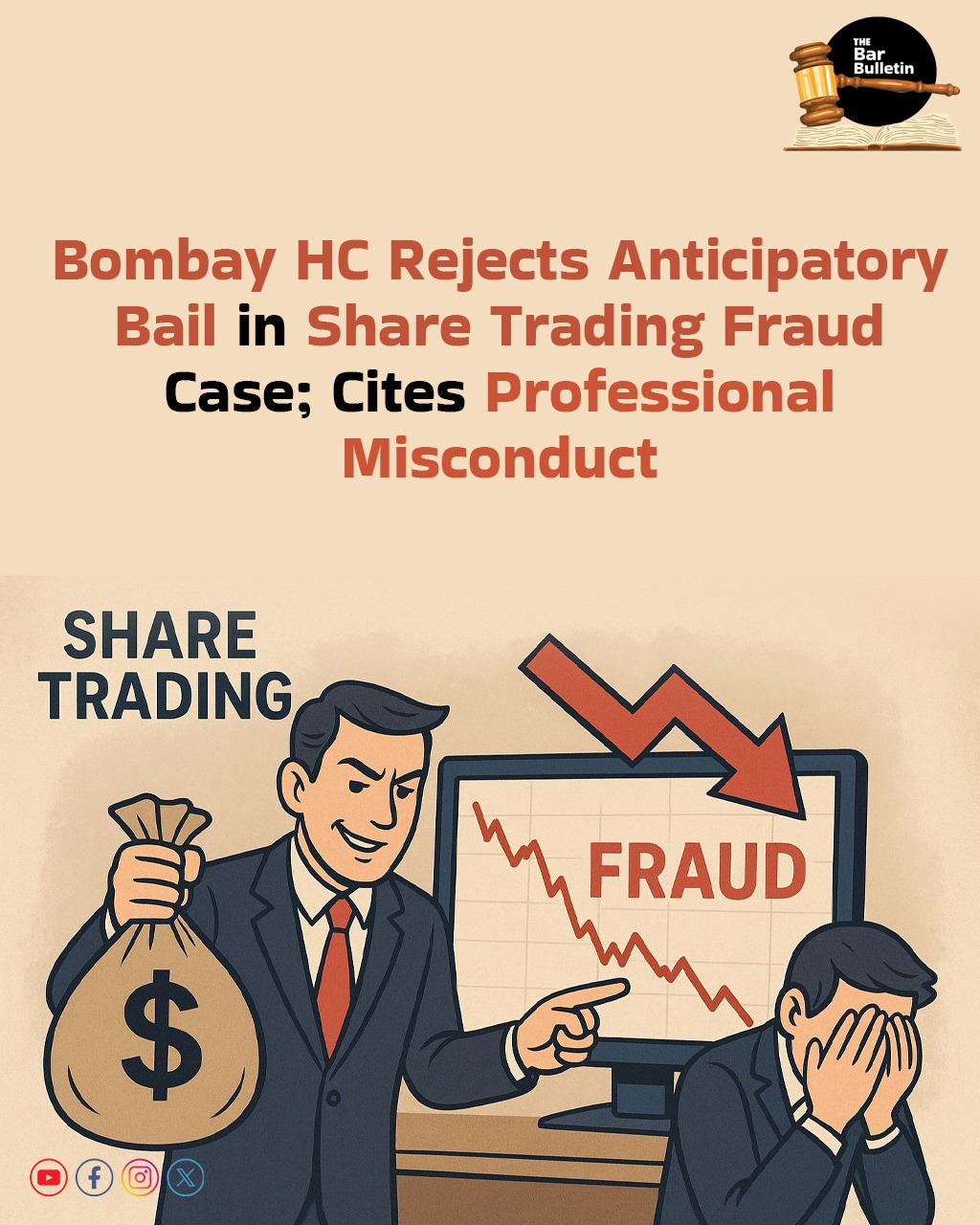The Bombay High Court rejected an anticipatory bail application filed by two applicants apprehending arrest under Sections 318(4) and 3(5) of the Bharatiya Nyaya Sanhita, 2023. Justice Amit Borkar found prima facie evidence of cheating and criminal misappropriation, noting that the promise of 10% to 15% profit every month in share trading was highly unrealistic and reflected dishonest intention at the inception.
The prosecution’s case was that the complainant and the applicants started a partnership firm in May 2024 under the name M/s. Law Sinergy. The applicants persuaded the complainant to invest money in share trading, assuring 10% to 15% of monthly profit. Based on these assurances, the complainant invested ₹30,00,000 in cash. Initially, the applicants paid ₹4,00,000 as profit, but thereafter no further payment was made. When the complainant demanded a refund, the applicants gave false assurances but did not return the amount.
The applicants argued that the FIR was false and motivated, contending that a civil dispute had been given a criminal colour. They maintained there was no proof of payment of ₹30,00,000 and claimed to have already paid ₹36,32,000 to the complainant. It was submitted that the parties, being lawyers, had professional disputes arising out of their firm, and any investment was made with full knowledge of risks.
The prosecution relied on transcripts of conversations accompanied by certificate under Section 65-B of the IT Act, and a draft Memorandum of Understanding sent via WhatsApp, where applicants admitted receipt of money for intraday trading. Similar allegations of inducement and default by four other victims involving amounts ranging from ₹4 lakh to ₹49 lakh were also cited.
Justice Borkar observed that the assurance of 10–15% profit every month was, on the face of it, highly unrealistic and impractical in the share market, since no genuine business could yield such assured and astronomical returns. The Court held that an inducement based on such an impossible assurance prima facie reflected dishonest intention at the inception, thereby attracting the offence of cheating.
Noting the professional status of the parties, the Court recorded that both are practicing advocates and referred to a notice issued by one of them stating that a sum of ₹26.32 lakh had been paid for “liaisoning work” with Revenue authorities. The Court remarked that such conduct directly reflects upon their professional integrity, as engaging in acts of influence peddling or liaisoning with public authorities for monetary consideration is not only unethical but may also amount to professional misconduct under the Advocates Act, 1961.
It was emphasized by the Court that when advocates, as officers of the Court, enter into transactions involving liaisoning work with government authorities or ministers, serious professional conduct issues are raised. The admission of such payments in writing by the applicant was noted to show that he was not acting merely as a business partner or investor but was engaged in activities contrary to professional ethics. It was further found that investigation papers revealed similar allegations by four other persons involving substantial amounts, indicating that the activity was not a single isolated transaction but part of a larger scheme.
Considering the magnitude of the sums involved, the number of victims, and the necessity of ascertaining the utilisation of funds, custodial interrogation of the applicants was held necessary, and the anticipatory bail application was rejected.
Appearances:
Applicants: Shailesh Kharat with Bharat Shinde, Sumitkumar Nimbalkar, Parthraj Ware, Neha Rathod instructed by Govind Mundhe
State: Mahalakshmi Ganapathy, APP
Intervenor: Chaitanya Pendse instructed by Rohan Hogle

